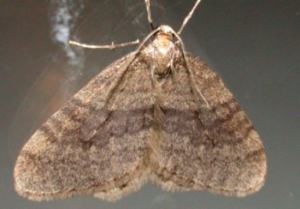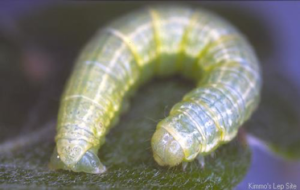Tuesday Feb 14th
07:30 PM
Population Biology and Biological Control of Winter Moth in New England
MCZ 101, 26 Oxford Street, Harvard University
Joe Elkinton
University of Massachusetts

 Winter moth, Operophtera brumata L. has recently invaded the northeastern United States and caused widespread defoliation. We embarked on a fourteen year project to collect life table data which involved estimating densities of different winter moth life stages at multiple research plots. We wished to understand what factors regulated the outbreak populations of winter moth that we observed in this region. We have also embarked on studies of population genetics that have focused on identifying the source of winter moths in New England, and their hybridization with a native congener called Bruce spanworm, O. bruceata . Our biological control efforts involves introduction of the tachinid parasitoid, Cyzenis albicans, which has controlled winter moth at other locations in North America. We have released C. albicans at 41 locations from Maine to Connecticut and have established the fly successfully at 21 of these. Significant parasitism is now arising at a number of these locations and we have documented declines of winter moth density, particularly in a population in Wellesley, Massachusetts. An analysis of our winter moth life table data has revealed that outbreak populations are regulated by density dependent mortality primarily in the larval stage. This mortality constitutes direct and overcompensating density dependence, resulting in distinct two year cycles of density. The dynamics contrast strongly with classic analyses of low-density populations of this insect in Europe.
Winter moth, Operophtera brumata L. has recently invaded the northeastern United States and caused widespread defoliation. We embarked on a fourteen year project to collect life table data which involved estimating densities of different winter moth life stages at multiple research plots. We wished to understand what factors regulated the outbreak populations of winter moth that we observed in this region. We have also embarked on studies of population genetics that have focused on identifying the source of winter moths in New England, and their hybridization with a native congener called Bruce spanworm, O. bruceata . Our biological control efforts involves introduction of the tachinid parasitoid, Cyzenis albicans, which has controlled winter moth at other locations in North America. We have released C. albicans at 41 locations from Maine to Connecticut and have established the fly successfully at 21 of these. Significant parasitism is now arising at a number of these locations and we have documented declines of winter moth density, particularly in a population in Wellesley, Massachusetts. An analysis of our winter moth life table data has revealed that outbreak populations are regulated by density dependent mortality primarily in the larval stage. This mortality constitutes direct and overcompensating density dependence, resulting in distinct two year cycles of density. The dynamics contrast strongly with classic analyses of low-density populations of this insect in Europe.
The talk is free and open to the public. The meeting is readily accessible via public transportation. Parking is available in the Oxford Street Garage with advance arrangement, as described here, or (usually but not always) at spaces on nearby streets. Everyone is also welcome to join us for dinner before the talk (beginning at 5:45 PM) at the Cambridge Common,1667 Mass Ave., Cambridge.
CEC meetings are held the second Tuesday of the month from October through May. The evening schedule typically includes an informal dinner (5:45 to 7:15 PM) followed by our formal meeting (7:30 – 9:00 PM). The latter begins with club business and is followed by a 50 minute entomology related presentation. Membership is open to amateur and professional entomologists.


